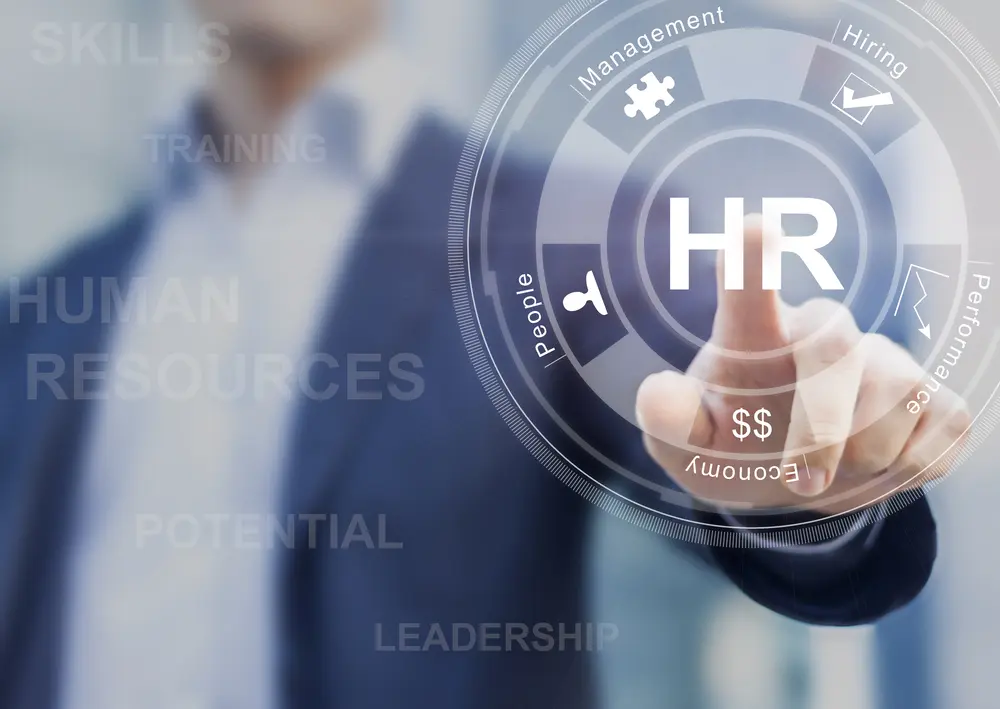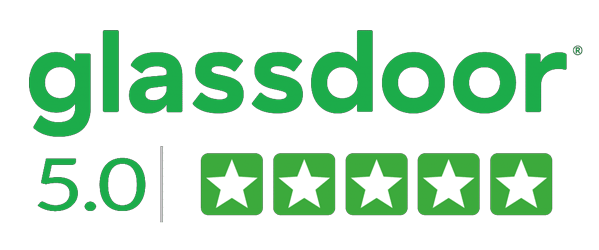
What Is Human Resource? And why do we need -HR-
Any business is made up of a variety of components, including financial resources, knowledge, and unquestionably human resources.
So HR is the key component that controls all other elements. After recruiting and selecting the best candidates to represent the company and aid in its expansion.
To keep all influencing factors moving in the right direction, it is time to manage human resources. This prompts us to wonder what the HR department is. And what precisely is its function?
What Is an HR Department?
When talking about a department like HR, we can compare its responsibilities to those of sales. The sales department aims to close more deals and generate the most money in the shortest amount of time.
While HR is the division that encourages all employees to perform their duties to the highest standard, which in turn results in more sales, more qualified leads, more satisfied clients, and undoubtedly more profit and business expansion. The HR division is in charge of encouraging the money-making engine, and people to run smoothly without any breakdowns or gasoline leaks.
The HR department must research how to develop its resources, as well as its strengths, weaknesses, challenges, and threats. It must also look into what motivates people to work hard, as well as what their most important values are.
Also, an HR department knows the needs of the employees as humans. To be able to work hard without getting bored, they require benefits. These advantages may include monetary gain, a sense of self-actualization, the acquisition of new knowledge and skills, and the possibility of career advancement.
An employee who is satisfied and capable of giving his employer his best work is produced when these factors are combined, and his probability of leaving the organisation also decreases.
What Is the Role of Human Resources?
In general, the HR department’s job is to foster a positive workplace culture that advances organizational objectives and fosters productivity while striking a fair balance between the authority of management and the implementation of regulations that serve the greater good.
Human resources professionals oversee all phases of the employee life cycle, including onboarding, performance management, career development, exit management, and promotion. They offer each total employee support so they can succeed within the company, produce tangible results, and feel as though all their needs are being met.
A human resource department is the caring eye of the management on its employees and the hand that implements the organisation’s policies and turns its values into action.
So, we conclude that the HR department has three major roles; administration, compliance, and personnel/organisational development.
Administration
- When an employee is hired, he anticipates that the HR department will be in charge of asking him for all necessary paperwork and application forms, as well as any official documents required for employment. Additionally, it is in charge of gathering all of these documents and organizing them so that they are safe and readily available whenever needed.
- HR administrators record all the data updates related to every employee, they organise and maintain personnel records including sick leaves, leaves of absence, overtime hours, and work schedules to help payroll HR moderators in the compliance unit.
- The administration unit in HR is responsible for establishing new contracts for job fairs, recruitment rounds, etc. that aim to attract qualified candidates and maintain the organisational culture in booths and public stages.
- It also puts budgets and recommends plans for its spending based on needed training programs, new employees, pay rises, and other fields that determine the major expense channels. It also recommends methods to reduce expenses throughout the business such as redundancies in case a job position turned out to be an overhead.
- It chooses the suitable HRIS system to improve the productivity of both managers and employees and manage their data using it.
- The administration is responsible for establishing the first contact with subcontractors, insurance vendors, accreditation bodies, etc. that help both employees and companies to have better benefits by signing contracts and developing partnerships with independent facilities and businesses.
- Any promotional or firing decision should pass by the administration to study its dimensions and reasons, and based on the analysis performed, the decision might be approved or rejected.
Compliance
- HR compliance starts checking whether the business’s internal policies comply with the local labour laws or not. if they are not complying, the HR compliance unit has to recommend the needed changes, set a full plan, determine the steps, and schedule implementation to protect the organisation from legal accountability.
- It also puts the employee handbook that provides employees with any information or regulations that manage the relationship between them and their employer.
- It’s a rich source of values, organisation history, and policies. It includes employment, firing, compensation, benefits, organisation mission, holiday policies, and more. Using an employee handbook helps HR specialists if the employee complies with the organisation’s policies throughout his daily tasks, interactions, duties, and requests.
- It is also responsible for analysing workplace grievances and employee complaints toward an organisational procedure or action taken by a manager or one of its representatives. HR compliance specialists are responsible for mediation between conflicting parties or assigning a third party for mediation. That’s why Compliance HR is responsible for employee relations.
- In case of termination, all reasons for taking this decision are evaluated to determine if they meet legal requirements or not. As well as, it’s preferred for this unit to perform onboarding activities to make sure that new employees are fully aware of benefits as well as legal and policy-related rules and regulations.
- One of the main functions of compliance is making sure that the employer provides a safe work environment, free of accidents or hazards, that protects employees’ health and personal safety. It also provides enough awareness to employees by developing and supporting safety training and actions that must be taken in the event injuries or fatalities happen at work.
- To guard against situations that could damage a company’s reputation and decrease revenue, HR specialists also identify potential employee-related risks before they take shape.
Personnel/Organisational Development
- Personnel management is responsible for the employee’s past, present, and future. It records his performance throughout the employment duration. Performance appraisals are effective reporting that allow HR specialists to check if the employee performance is upgrading or downgrading.
- This unit develops training and development programs that guide employees to grow their skills and unleash their potential for a better future and career that help them achieve their objectives and develop higher performance.
- The HR specialists estimate the Employee Value Proposition (EVP) based on the employee’s efforts, output, and potential for improvement to determine whether the rewards and benefits the employee receives are commensurate with his performance.
- The methods, practices, and features that comparable businesses adopt and acquire are identified by HR specialists using benchmarking analysis to assess their applicability for implementation within the organisation.
- Organisational development can take many different forms, such as job design, which outlines the responsibilities of a critical position required within the organisation. Because it is occasionally seen as a promotion, job design aids an organisation in achieving its objectives and improves employee satisfaction, it’s followed by job analysis to know exactly how this job will fit in the organisation.
- The best criteria for implementation are determined by HR specialists, who also create plans for integrating change throughout the organisation, making the department operations, employees, and team hierarchies adapt to them, achieving a successful shift. In order to forecast the change effect before it actually occurs, this unit primarily manages the surveys that are conducted before a change enters the implementation stage.
What Is Human Resources Management (HRM)?
HRM refers to a collection of procedures that take care of prospective employees from the time of recruitment until they are managed as an organization’s employees.
It also designs and develops policies that regulate the employees’ activities and their relations with their employers.
HRM aims to upgrade the organizational culture and values to help the business achieve its objectives. HR specialists are not only aware of the internal factors but also the external ones.
The external environment involves economics, technologies, laws, and rising attitudes. Depression may be present in the local or global economic environment.
Every decision an HR professional makes should take this fact into account. Modern, quickly evolving technologies require HRM to figure out how to use them in the workplace for improved communication, time savings, or even financial savings.
HRM investigates things like whether the company complies with laws against discrimination in the workplace and whether the idea of implementing a remote work schedule is feasible. HRM functions can be performed in-house, as well as outsourced.
What Are the Types of Human Resources Roles?
Based on the previously covered HR functions and the critical role that HRM plays in any business, each employee in the HR department has a specific role that primarily defines his responsibilities.
Employment Specialists
An employment specialist’s main role is to define the business’s needs to achieve its objectives and turn them into vacancies they need to fill, they attract qualified candidates, pass them through screening, to shortlist the most qualified, and then move on to the onboarding process, and responsible for structuring the job benefits, basic salary, and other compensation benefits.
HR Assistants
An HR assistant assists HR managers primarily with administrative work, documentation, and safeguarding data against loss or manipulation. All employee-related personnel matters are of concern to them.
HR Coordinators
HR coordinators work on enhancing the relationship between the employee and the employer. They are responsible for helping employees during training programs, implementing new policies, or applying organisational changes.
HR Specialists
An HR specialist helps the business with benchmarking processes, developing employee handbooks, and solving deep-rooted problems and performance management strategies. Also, HR specialists set career growth plans and employee development based on employees’ career objectives and the direction that will help the business grow.
How Does HR Support Employees?
The HR department supports the employee throughout his or her tenure with the company; it is the department that genuinely cares about providing the employee with their full compensation benefits, offering their objective rights without loss, and maintaining their safety and health. In exchange, the employee is expected to perform their duties effectively, adhere to company policies, and embrace the company’s values. HR supports employees in three areas:
Career Growth
Your employee won’t leave as long as he can clearly see his future with your business. It is always a good idea for HR to provide comprehensive career growth plans, as doing so improves employee satisfaction and retention.
Learning and Development
Choosing the best workshops, classes, and training courses to help employees excel at their jobs is always evidence that the employee will believe you genuinely care about him and his future. The HR division’s job is to customize these sessions so that they provide the knowledge, abilities, and experiences that the employee needs for his or her career, as well as for managers.
Health and Wellness
An employee cares about his life, his family, and his health, so the HR department works to maintain his mental stability by shielding him from excessive pressure. It also defines his marital status to determine whether he needs parental leave, whether she needs maternity leave, or whether she needs another type of leave.
Whenever your business faces a problem involving human resources or needs to develop a new activity, Whitecollars makes HR easy by bringing all HR services together in one location. Check out our HR service packages and choose the best fit, & to get more info about tribal leadership stages click here


